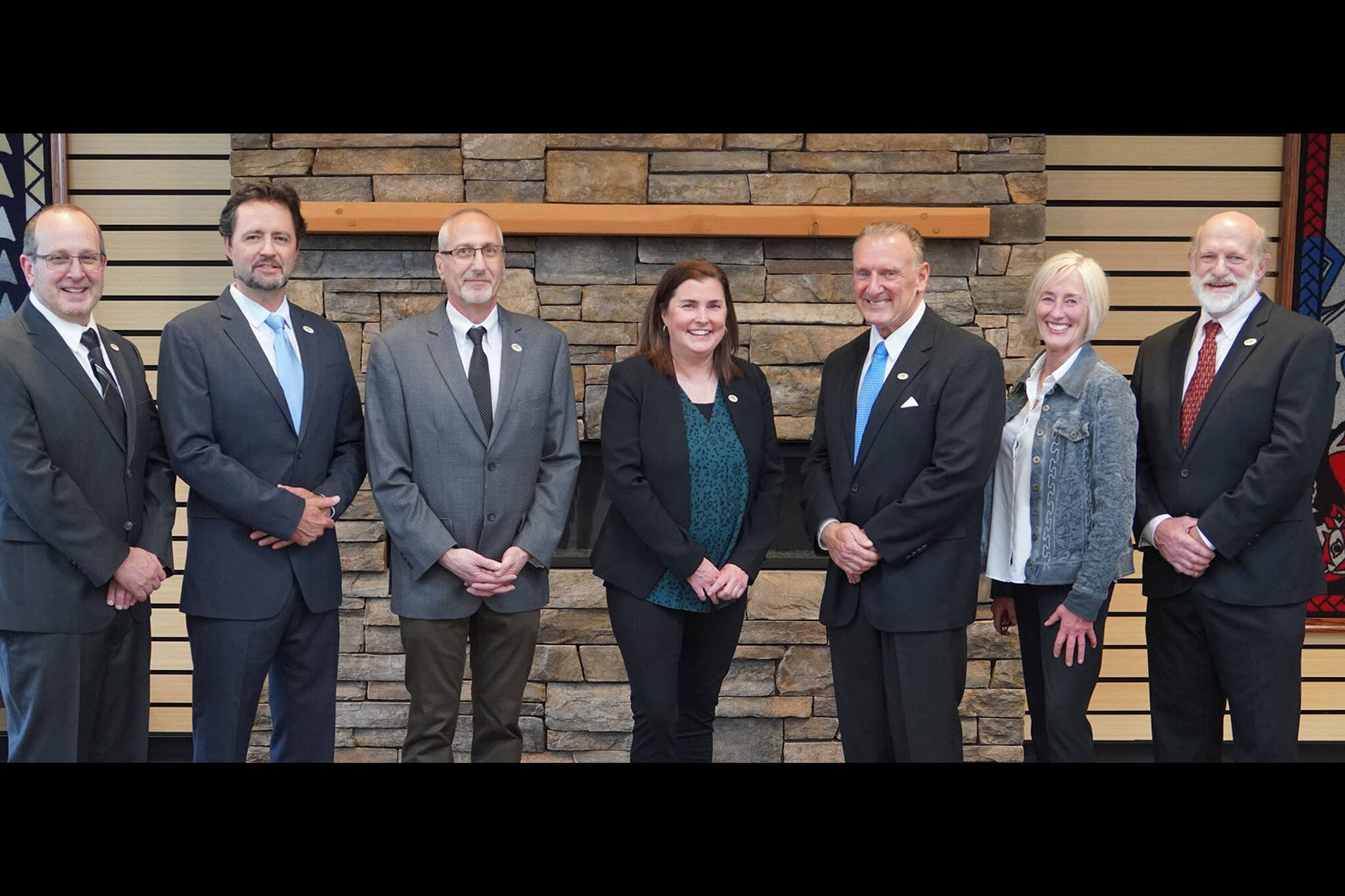With aims to restart development and serve the city’s residents, he North Bend City Council on Sept. 20 unanimously affirmed its decision to reprioritize future water connections to those within city limits.
The move was made to serve development in an eastern portion of the city that has been halted because of a lack of access to water. That section of North Bend — while technically in city limits — is served by Sallal Water Association, a member-owned water co-op that announced a moratorium on new water connections in June.
City Public Works Director Mark Rigos said the city’s reprioritization was a reaction to that moratorium and subsequent stoppage of a 30-acre, mostly commercial development project known as Alpine Crossing. The decision, Rigos said, has the support of the King County Utilities Technical Review Committee and the state Department of Health.
“The city would like to step in, and we believe it’s our right to step in and serve city property owners over unincorporated King County properties,” he said.
North Bend’s water service district includes both the majority of city limits and a portion of unincorporated areas. The decision takes water the city had designated for use in those unincorporated areas of its water service district and reprioritizes them for use in city limits. While the city will not outright stop serving unincorporated areas, the change will give priority to property owners who are in city limits, allowing those served by Sallal the ability to request water from the city.
Jae Hill, a principal planner with King County’s Permitting Department, told the Valley Record in previous coverage that the city can legally service Sallal properties without a jurisdiction change.
“Since Sallal has stated they can not serve new developments within their service area, and the City of North Bend claims that they can serve [that area], any applicant can request a Certificate of Water Availability from the City,” Hill wrote in an email.
While some residents have shared concerns that the plan will encourage overreach, city officials say the decision is just a redirection of water and will not have an impact on its need for additional mitigation water.
“This is just a reallocation,” Councilmember Alan Gothelf said. “It’s no change in status.”
According to a city staff report, the change is intended to serve as a short-term solution for the city to ensure all city limits, including sections served by Sallal, can receive service. The city will still need additional mitigation water to serve the city at full build-out.
While Sallal needs additional water to exit its moratorium, a process that could take years without a city contract, the city needs another back-up mitigation water source to use as a failsafe if Hobo Springs, its only current backup source, is unable to mitigate water taken from the Snoqualmie River. The two parties have been negotiating a mutally beneficial deal sporadically for the last 15 years, but to date have been unable to reach an agreement.
The decision to serve Sallal properties comes after North Bend Mayor Rob McFarland made an offer to purchase the Sallal Water Association last month at an Sallal board emergency meeting, which came as a shock to many Sallal members. McFarland and the city claim the merger of the two water associations would meet both parties’ water needs without a downside. Sallal called the mayor’s offer an “act of political theater,” and has accused the city of making false statements about Sallal’s situation.
Sallal has raised several concerns about a merger, notably over potential rate hikes and representation. If they merged, Sallal has concerns that those in unincorporated King County, a majority of their customers, would no longer have direct representation over their water district. Sallal is expected to hold a meeting next month to discuss a sale.
Meadowbrook ULID gets engineering and permitting contract
Also on Sept. 20, the North Bend City Council approved an engineering and permitting contract with Gray and Osborne for the Meadowbrook Utility Local Improvement District.
After engineering and permitting planning reaches 60% completion, the city says the project will undergo a state required environmental review under the State Environmental Policy Act.
That environmental work is expected to take two years, according to a city staff report, with the project expected to be permitted in 2024. Construction on the ULID is expected to begin in spring 2025.
The Meadowbrook Utility Local Improvement District will introduce a sewer system to the city’s Meadowbrook neighborhood, marking the first time any section of the city, west of the South Fork of the Snoqualmie River, has a sewer system.
The ULID was the subject of over eight months of debate by the city council, and several delays, before it was unanimously approved on Aug. 2. The project is expected to approve the overall value of the area and allow businesses who had previously been limited, to fully develop their properties.
Contract for Taylor Park
The council approved a contract with Site Workshop for Taylor Park and Riverfront Park Design Project.
At Taylor Park improvements include, better connecting the park to downtown, providing a community gathering space, making more efficient use of parking on McClellan Street and considering possible improvement and relocation for the railroad tracks and deep out in the park.
At Riverfront Park, improvements include trails and better connections to downtown, improving access to the Snoqualmie River and improving floodplain storage capacity of the park.
The $250,000 project was funded through impact fees.
–
Editor’s note: This story has been corrected since appearing in print.


